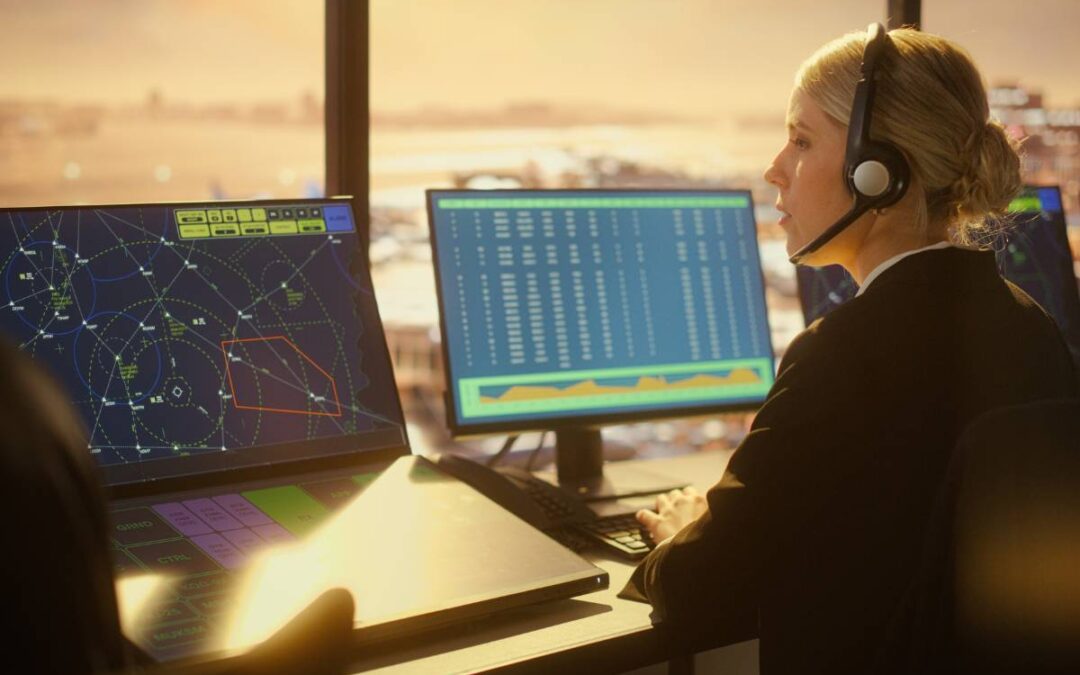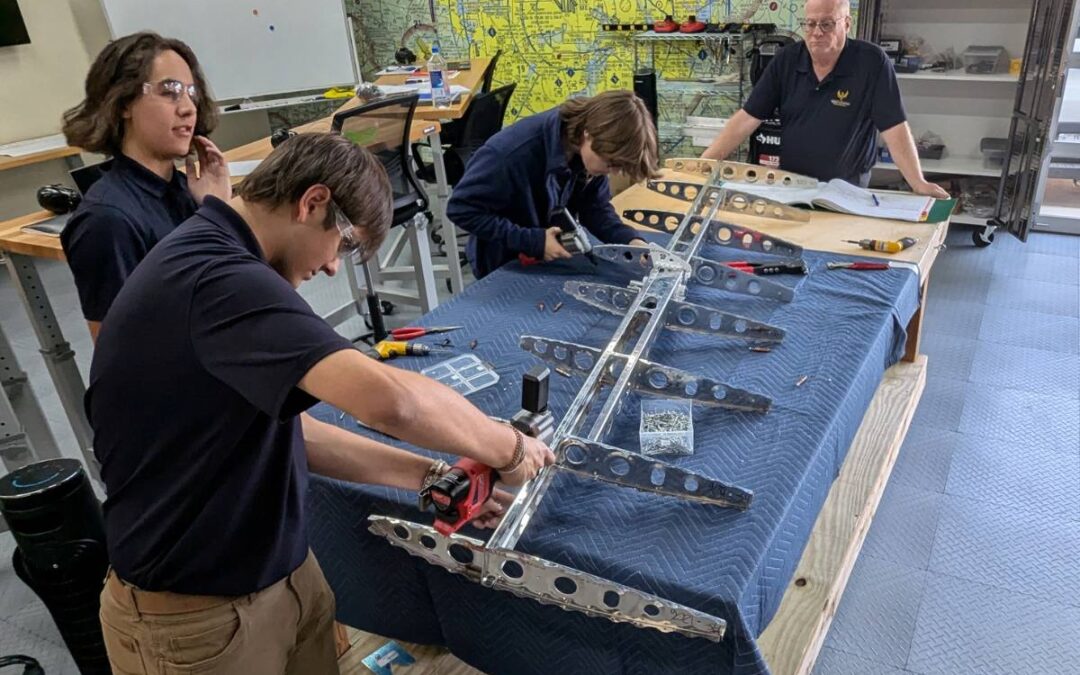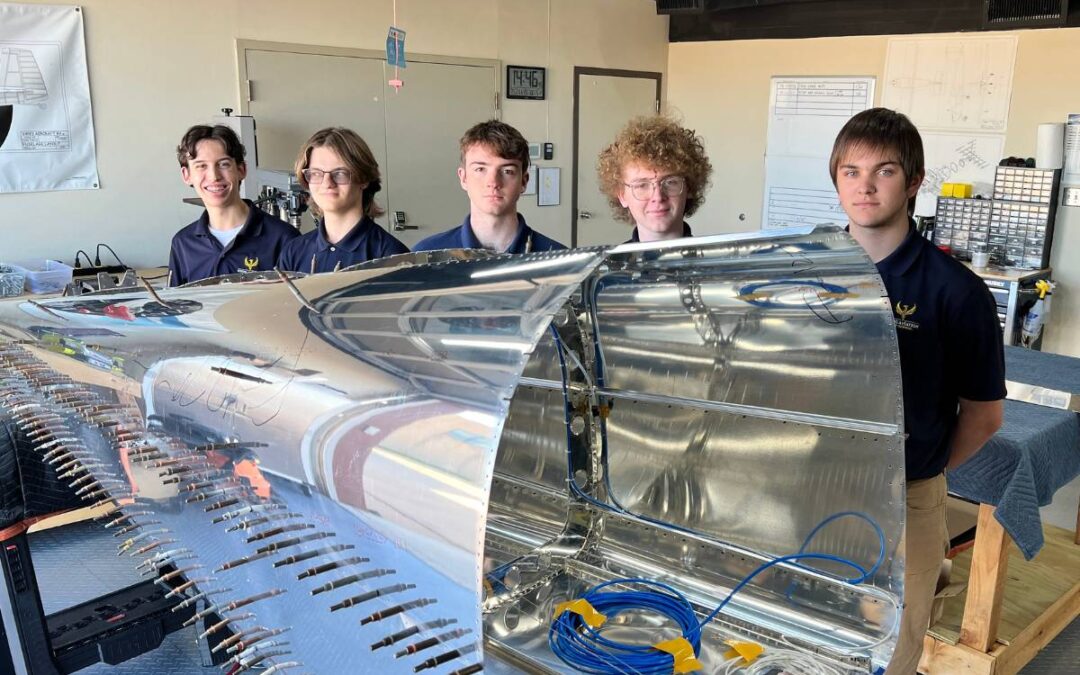Have you ever looked up at the sky and wondered what it would be like to fly a drone for a living?
Unmanned Aerial Vehicle (UAV) pilots are in high demand across many industries.
From emergency response to agriculture, these skilled professionals use drones to complete a wide variety of tasks.
To become a UAV pilot, you’ll need training in flight planning, safety procedures, and drone operation.
With the right education and skills, you could take your career to new heights as a drone pilot.
Let’s take a look at how a STEM background can make you a better drone pilot.
Role and Responsibilities
UAV pilots have a wide range of duties that blend technical skills with safety awareness. Your job involves more than just flying drones – it’s about managing complex systems and gathering important data.
Primary Duties of a UAV Pilot
Your main job as a UAV pilot is to operate unmanned aerial vehicles safely and effectively.
You’ll need to:
- Plan flight paths and missions
- Check weather conditions
- Inspect drones before takeoff
- Control the UAV during flight
- Monitor systems and sensors
- Collect and analyze data
- Follow aviation laws and regulations
You’ll likely work with different types of drones, from small quadcopters to larger fixed-wing UAVs.
Each has its own controls and capabilities you’ll need to master.
Day-to-Day Activities and Tasks of a UAV Pilot
Your daily routine as a UAV pilot can vary, but usually includes:
- Preparing flight plans
- Setting up and checking equipment
- Briefing team members on missions
- Flying drones for various tasks like mapping, photography, or search and rescue
- Processing and analyzing collected data
- Maintaining flight logs and reports
- Cleaning and maintaining drones
You might also spend time learning about new drone tech, practicing your flying skills, or updating your knowledge of aviation rules.
Every day brings new challenges and chances to use your skills in exciting ways.

Required Education and Skills
Getting into a career as an unmanned aerial vehicle pilot needs specific education and skills. You’ll need to learn about flying, technology, and safety rules.
Necessary Educational Background and Degrees
To become a UAV pilot, you should focus on STEM subjects in school. These include science, technology, engineering, and math.
If you attend Rising Aviation High School, you’ll be able to pursue a STEM education while also becoming a drone pilot. But many colleges also offer programs in UAV operations.
You can get a degree in aeronautical management or unmanned aerial systems. These programs teach you about aircraft systems, remote sensing, and UAV design.
Some schools also offer technical certificates in drone piloting. These shorter programs can help you learn the basics quickly.
Key Skills and Qualifications
As a UAV pilot, you need both flying skills and tech know-how. You should be good at math and understand physics.
Strong communication skills are a must. You’ll often work in teams of other people and at times with other drones in the air with yours.
You should also be able to:
- Read maps and plan flight paths
- Understand weather patterns
- Use computer software for flight planning
- Perform safety checks before and after flights
Being detail-oriented and patient will help you succeed in this field.
Get Ahead by Attending A STEM High School
Going to a STEM high school can give you a head start in your UAV pilot career.
These schools offer advanced classes in math, science, and technology.
You’ll get hands-on experience with tools and tech used in the field. Many STEM high schools have robotics clubs or drone teams.
As mentioned earlier, students at Rising Aviation High School are able to participate in our Drone Pilot Program. Students in this program gain a deep understanding of the UAV industry and earn their FAA drone pilot certificate so they can begin their career as a drone pilot while still in high school.
Career Path And Advancement
Becoming an unmanned aerial vehicle pilot offers exciting opportunities for growth and specialization. You can progress from entry-level roles to leadership positions as you gain experience and skills.
Typical Career Progression
You’ll likely start as a drone pilot trainee or assistant. In this role, you’ll learn the basics of flying UAVs and assist more experienced pilots on flight missions.
As you improve, you can become a full-fledged drone pilot.
With experience, you might move into senior pilot roles. These positions involve more complex missions and may require additional certifications.
You could also become a team leader, managing other pilots and coordinating operations.
Some pilots transition into training roles. As an instructor, you’ll teach new pilots and help update training programs.
Opportunities For Advancement And Specialization
As you advance, you can specialize in different areas of UAV operation. Some options include:
- Emergency response and search and rescue
- Aerial photography and videography
- Agricultural surveying
- Infrastructure inspection
You might focus on a specific industry like military or intelligence. These fields often use advanced drone technology and offer unique challenges.
You can also move into technical roles.
This might involve working on drone design or developing new flight systems. Some pilots become consultants, advising companies on drone use and regulations.
As the UAV industry grows, new career paths are emerging. Staying up-to-date with technology and regulations can help you find exciting opportunities.

Impact On Aviation
Unmanned aerial vehicle pilots are changing the aviation world. You might not realize it, but these new pilots are making a big difference in how we use the skies.
UAVs are creating new jobs in aviation. You could become a drone operator for many different industries. This includes photography, surveying, and even package delivery.
The Federal Aviation Administration is working hard to keep up with these changes.
They’re making new rules to make sure drones and regular planes can share the air safely.
The FAA is helping to integrate drones into the national airspace. This means drones could fly alongside regular planes one day.
Drones are also changing how we learn about flying.
You can now take drone classes as part of your aviation education. This helps you understand both old and new types of flying.
The FAA is even using drones to teach kids about flying.
They have special programs to get young people excited about aviation careers. This includes learning about drones and other cool flying tech.
Challenges And Rewards
Like any career, being a drone pilot has its pros and cons. You’ll face some tricky situations, but you’ll also get some unique perks. Let’s look at what you can expect in this job.
Common Challenges Faced In This Career
You’ll need to keep up with lots of rules and regulations as a drone pilot and these can change often.
Weather can be a big problem too. Rain, wind, or bright sun can mess up your flights. You’ll have to learn to work around these issues.
Security is another big deal. You need to be careful about where you fly and what you film. Some places are off-limits, and you could get in trouble if you’re not careful.
Tracking and detecting your drone can be hard sometimes. You might lose sight of it or have trouble finding it if it lands in a tricky spot.
Rewards And Benefits Of Pursuing This Career Path
You’ll get to work with cool tech every day.
Drones are always getting better, so you’ll always be learning new stuff.
Your job may be super flexible. You can often choose when and where you work. This is great if you like to set your own schedule.
Drone pilots often capture stunning photos and videos that most people never get to see.
Your skills will be in high demand. Many different jobs need drone pilots, from search and rescue to filmmaking. You’ll have lots of options for work.
You can make a good living too.
Drone pilots often earn above-average pay, which is a nice bonus for doing such an exciting job.

Future Outlook for UAV Pilots
The future for unmanned aerial vehicle pilots looks bright. New technologies and expanding applications are creating exciting opportunities in this field.
Trends And Future Developments In The Field
Drones are getting smarter and more capable.
You’ll soon see UAVs with artificial intelligence that can make decisions on their own. This will open up new uses in areas like agriculture and environmental monitoring.
3D mapping is another big trend.
Drones will create detailed 3D models of buildings, forests, and urban areas. This will help in infrastructure inspection and city planning.
Drone swarms are also becoming more and more common.
You might control multiple drones at once for tasks like search and rescue or large-scale environmental surveys.
Job Market Outlook And Demand
The job market for UAV pilots is taking off. Demand is expected to grow by 51.1% over the next five years. This growth spans many industries:
- Agriculture: Crop monitoring and precision farming
- Oil and gas: Pipeline inspections
- Urban planning: 3D mapping of cities
- Environmental science: Wildlife tracking and habitat surveys
- Forestry: Tree health assessment and fire prevention
Rural areas will see more drone use too. You might deliver medical supplies to remote locations or help with search and rescue operations.
As regulations evolve, new opportunities will emerge. You could find yourself working in exciting fields like drone delivery or aerial cinematography.






